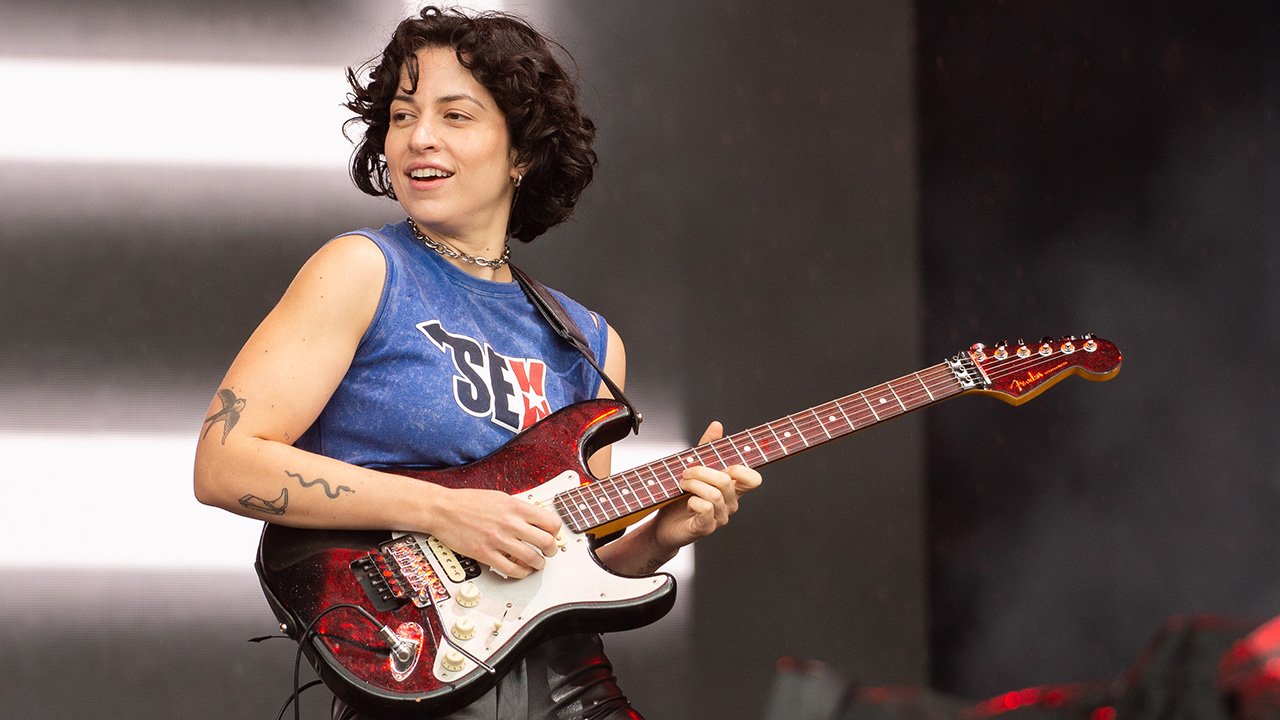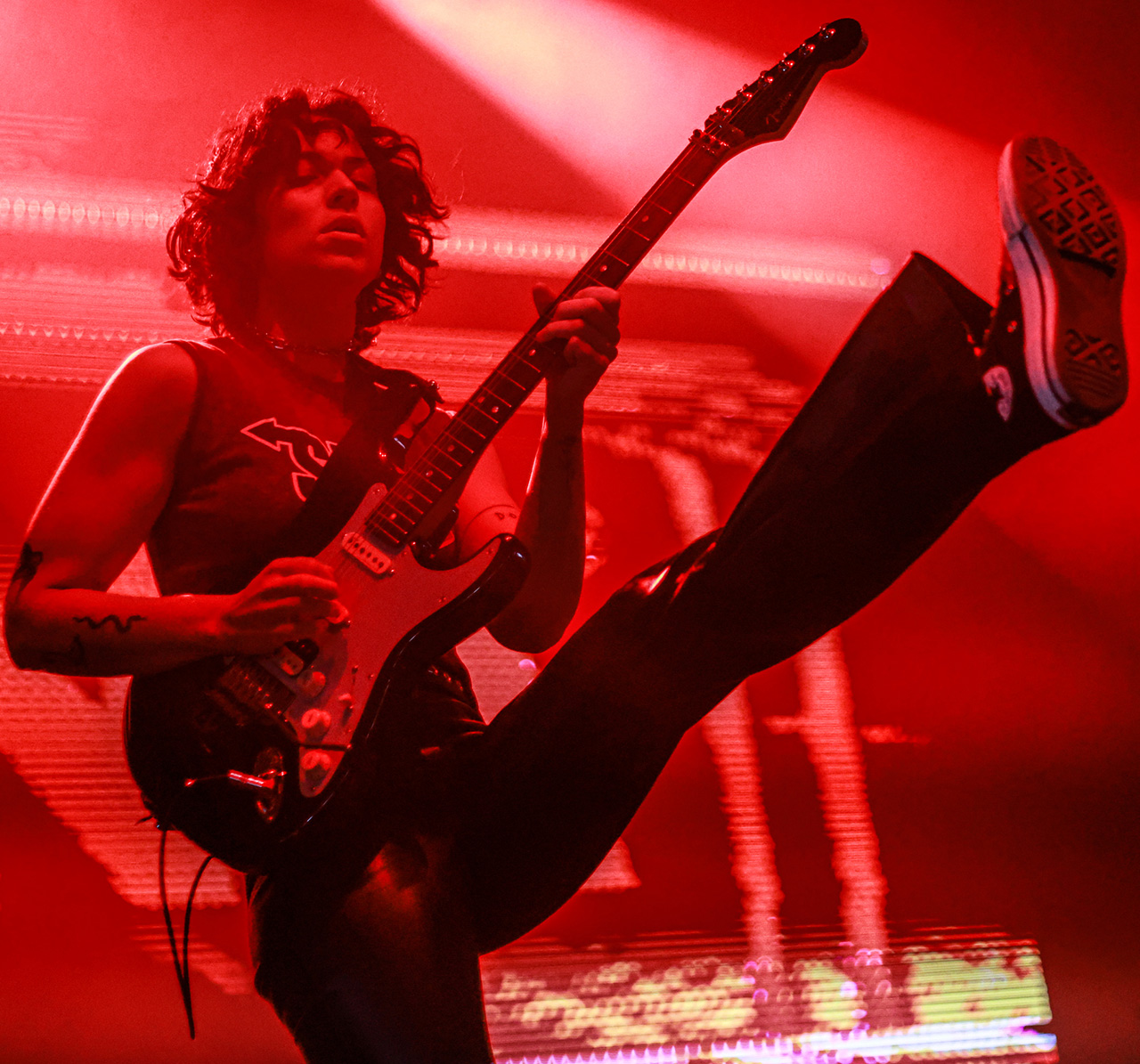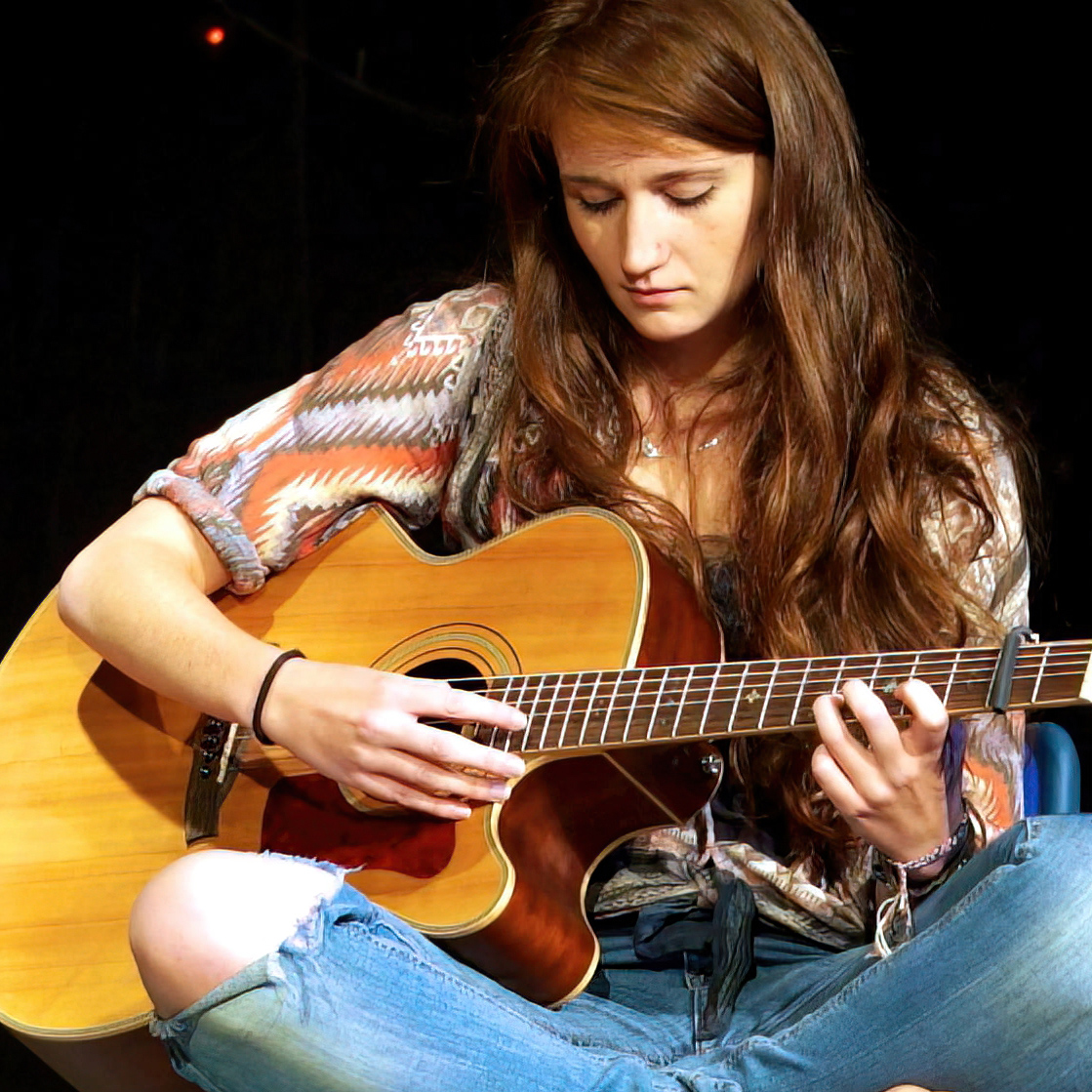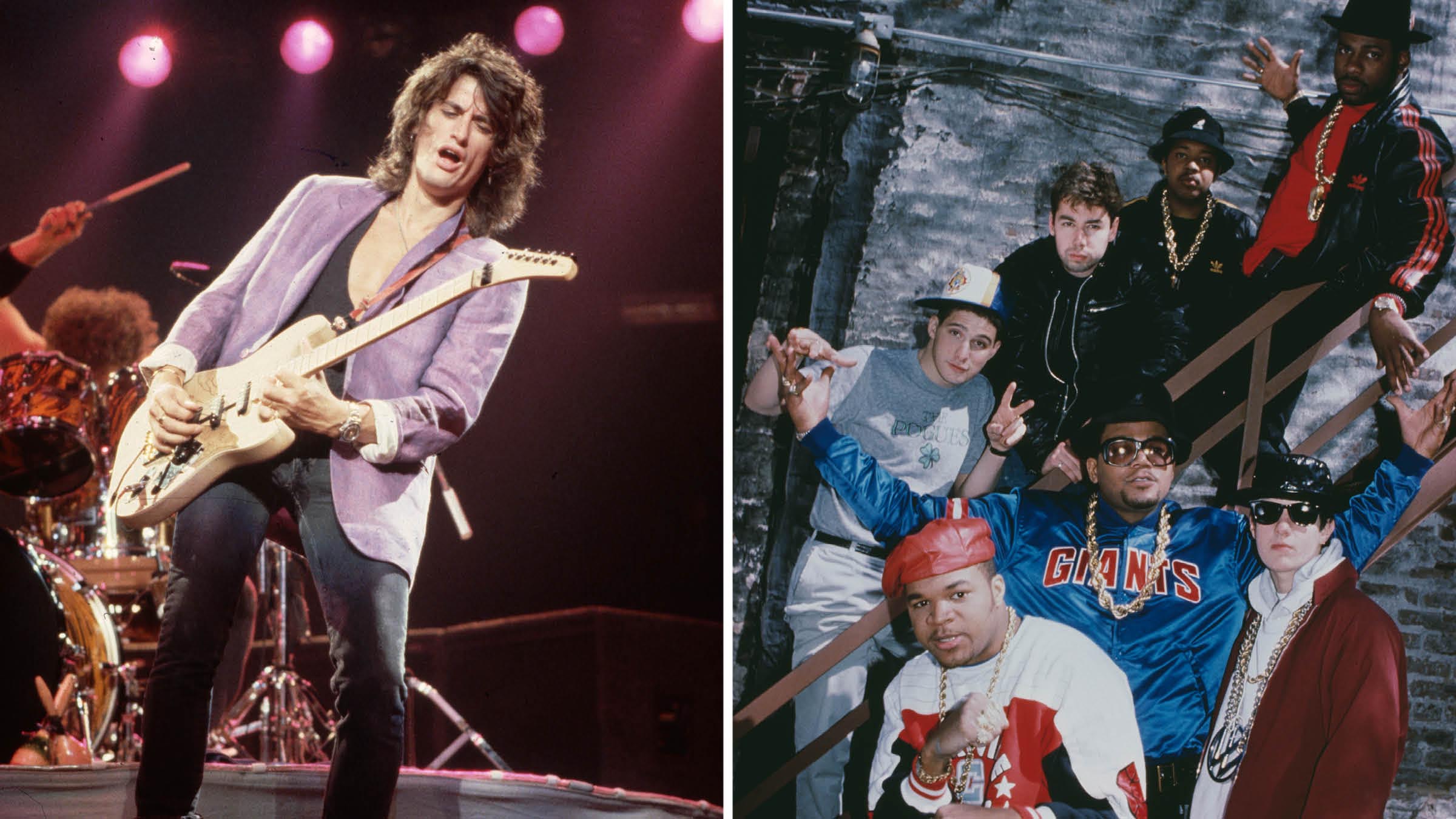“When you’re playing pop, you need to get the ego out of the way. You’re trying to elevate the song, rather than be heard as a guitar player”: The key to good pop guitar, says MUNA guitarist Josette Maskin, is to play less than you actually want to
Inspired by Jeff Beck and session legend Paul Jackson Jr, Josette Maskin explains how MUNA balances three guitar players, how they ended up using fuzz more than distortion, and why label boss Phoebe Bridgers is underrated as a guitarist

All the latest guitar news, interviews, lessons, reviews, deals and more, direct to your inbox!
You are now subscribed
Your newsletter sign-up was successful
After being dropped by RCA during the pandemic, Los Angeles-based trio MUNA found themselves a new home on Phoebe Bridgers’ Saddest Factory label in 2021. With Bridgers, they conceived a perfect little viral guitar-pop smash by the name of Silk Chiffon, then followed it up with another 10 infectious anthems on their self-titled, self-produced third album.
Having met while studying at USC 10 years ago, the band exudes a veteran kind of chemistry and consists of Katie Gavin (vocals, acoustic guitar), Naomi McPherson (production, synth, guitar and vocals) and Josette Maskin (lead guitar). Although they could – and sometimes do – all play at once, their dynamic arrangements never suffer from six-string overindulgence.
“We’re making pop music, so I think you try to do the thing that’s going to be the most impactful with the least amount of parts,” says Maskin, who’s become a specialist in ultra-lean, ultra-creative lead playing.
What guitars do you use in MUNA and what makes them the right fit for the sound?
“My main guitar is a Fender Ultra Luxe. It’s a model they came out with during the pandemic – a Strat with a Floyd Rose. I use the Floyd Rose a lot live because it lets you do so many things that make it sound unlike a traditional guitar. That guitar is just rad. It’s my favorite that Fender has put out in a really long time.
“I play a lot of slide on a Fender Jazzmaster. I just like playing a Jazz because of how long the neck is; and having really heavy-gauge strings is really helpful for playing slide.”
What’s your number one amp?
All the latest guitar news, interviews, lessons, reviews, deals and more, direct to your inbox!
“In a live context we use Kempers, which have been absolutely unbelievable in terms of the live show. There’s also so much more control in terms of EQ and being able to notch things out and get a really clear sound.
“We’re able to be wireless and we can MIDI map all the guitar tone changes because, in any given song, we can have up to eight different tones going on!”
What other equipment couldn’t you live without?
“I love to play slide and I love to use an EBow. In terms of trying to make the guitar sound like a synth, we’ll record a lot of EBow lines with a slide and just do different voicings that you couldn’t necessarily play on the guitar or on piano. We’ll multi-track and use it in a way that’s just a little bit more interesting.
“Pedal-wise, I love to use the Boss Hyper Fuzz. I don’t know how we even got into it, but we use a lot more fuzz than distortion. I also have the Z.Vex Octane, another fuzz pedal. We use those two a lot as well as a Boss Chorus and a Boss Vibrato. It’s subtle things – there are a lot of times where you want some sort of movement in the sound.”
You’ve toured and collaborated with Phoebe Bridgers, but have you ever got the chance to nerd out over guitars together?
“Honestly, not really. Whenever we’re hanging out, we’re working. In the studio, the only time we’ve ever gotten to be together in that context was when we were doing Silk.
“She’s an underrated guitar player and she kind of revolutionized the rubber bridge era of Los Angeles guitar sounds. She’s a killer player and a killer musician all-round.
MUNA’s set-up is interesting because there are some songs where all three of you play, and Naomi might have a 12-string and Katie an acoustic. Then there are others where it’s just you. How does it affect your approach?
“When it’s a song where there’s actually other guitars, it’s so much more helpful because that means it’s kind of a more traditional song. The really pop stuff, I think, is much more complex.
“I would say that everything I’m trying to do is just to elevate the vocals. I think that’s the point of most of the production as well. It’s a case of trying to stay out of the way and make the point of the song come across, whether that’s playing a response to the vocal part or an addition to it.”
Do you have any other tips for players who are just starting out?
“Play smart and play less. When you’re trying to do pop music, you need to get the ego out of the way. You’re trying to elevate the song, rather than trying to be heard as a guitar player. I think that’s where a lot of players – at least in my opinion – can trip over themselves.
“On our first record we were playing so much, but it was because we didn’t know any better. Now I think we just try to think about what’s actually important and that’s the song. So I would say play less than you’d actually ever want to. You can play a lot when you play live, but not when you’re recording.”

Do you have influences who are points of reference for that kind of playing?
“I do and I don’t! I love Jeff Beck, but I guess it’s not necessarily in the pop context. The thing I like about Jeff Beck is that he tried to make the guitar not sound like a guitar in some of the coolest ways – like making it sound like a bird. Then there’s Paul Jackson Jr, who I think is the classic rhythm player.
“But, you know, in pop music the guitar is just not the focus. Pop is so much from the ‘80s and so much of that is synth-based music.”
What’s next for MUNA and what are you looking forward to in 2024?
“We’re going to try to actually write our next record. We’ve been touring so much and we’re going to have to go back into the studio for the first time since we’ve had a good amount of success, and figure out who we are again as a band.
“I’m definitely excited to do that and to have time to be creative and actually get to play the guitar for fun, rather than for work always!”
- MUNA was released in 2022 and it's available from Saddest Factory Records.
Since graduating university with a degree in English, Ellie has spent the last decade working in a variety of media, marketing and live events roles. As well as being a regular contributor to GuitarWorld.com, she currently heads up the marketing team of a mid-scale venue in the south-west of England. She started dabbling with guitars around the age of seven and has been borderline obsessed ever since. She has a particular fascination with alternate tunings, is forever hunting for the perfect slide for the smaller-handed guitarist, and derives a sadistic pleasure from bothering her drummer mates with a preference for wonky time signatures.

